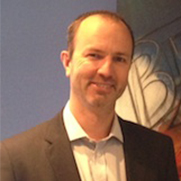
Africa’s Leading Financial Services Investment Group Extends a Hand to Entrepreneurs in the U.S. as a Long-Term Capital Partner
By BPI Staff
The investment group behind Africa’s leading financial services businesses – with a combined market cap of some $14 billion – is embarking on a partnership outreach to top entrepreneurs within the North American market.
Having identified the critical importance of developing disruptive innovators in the financial services sector, RMB and RMI Holdings have resolved to identify talented offshore entrepreneurs relevant to their portfolio, and to develop long term investment opportunities.
A fact-finding team led by CEO Herman Bosman visited San Francisco and Silicon Valley to meet with both American and expat South African executives innovating in the space. The team is having conversations with prominent venture capitalists, emerging game-changers and leading business networks, including the Business Performance Innovation (BPI) Network and the SABLE Accelerator.
Founded by three iconic entrepreneurs in the late 1980s, RMB and its more recent insurance holding entity RMI, have portfolios, which already include South Africa’s largest bank – its largest direct short-term insurer – and one of the world’s most innovative health and wellness companies (Discovery).

However, in an interview Bosman said that despite the comprehensive portfolio, disruptive innovation would soon find and pry open white spaces in the sector. “Our board arrived at our mandate by saying that the velocity of change – especially with technology transformation – is only increasing, so even if we can’t recognize the white spaces in our own portfolios, they are going to be disrupted in some way – and we’d rather be part of that disruption than its victim.
Bosman added that “big businesses do not always have the agility, or the ability, to be disruptive, so we need to identify and partner with those people who have these qualities in next generation financial services. We are looking to be long term partners, not just capital providers.”
“South Africa offers an ideal test market environment for U.S. companies,” says Bosman. “We can help someone bring their prototype into our market, which can be applied and implemented within our companies. We have a comfort with regulated industries, long-term funding capacity, and we have a lot of patience and belief once we have selected portfolio partners.”
In a recent strategy overview, RMI set out the stakes for shareholders, by quoting a report by Macquarie bank from July 2015, which stated that Australian banks stand to lose $27 billion revenue per year to disruptive companies. In response, RMB and RMI are rolling out an integrated innovation strategy, including the launch of domestic incubator – in both a physical and digital environments; the development of “intrapreneurship” programs in their companies; and active outreach to offshore entrepreneurs.
The group’s decisive response underscores the findings of the BPI Network’s recent global study — Startup Innovation Inspiring Business Transformation. This report noted that many of world’s largest corporations are scrambling to transform and remodel their businesses as lean and inventive startups with vision, ambition and a willingness to take risks disrupt their markets and prompt acquisitions, restructuring and a new focus on innovation.
“The new crop of emerging growth companies are forcing large corporate incumbents to rethink and reinvent the way they engage more intimately with customers and make their products and services more accessible and available through all channels of interaction,” stated the BPI Network report.
Bosman said potential U.S. partners for the group could include:
- U.S. businesses looking for the ideal conduit into the dynamic and rapidly growing Sub-Saharan financial services environment – providing unique access, knowledge networks and a “soft landing” into regulated markets there
- Disruptive tech-based businesses in areas like robo advice, digital currencies for FX or settlement mechanisms; digital distribution businesses or peer to peer platforms
- U.S. startups looking for a “live test” environment to prove their value proposition to U.S. funders – for instance, an SME lender who may need to do live-test credit scoring methodology and real-world performance in a mature financial market
- U.S. entrepreneurs with South African roots who can take advantage of their own familiarity with the reach and innovative power of the RMB brand – and of RMB’s mission to support top South African entrepreneurs – to seek enduring capital partnerships.
Voyt Krzychylkiewicz, a senior investment executive at RMB, says the emphasis in their outreach will be on people, rather than products. “People will want to know: why us versus a traditional VC funder or incubator?” he says. “We are long-term capital partners. While we have evergreen capital, we‘d rather hold partnerships in perpetuity – we’re not interested in exiting businesses. We’re not trying to buy something at 10 times revenue and sell it at 60 times revenue. We’re interested in building businesses in next generational financial services; we’re interested in supporting entrepreneurs holistically.”

Krzychylkiewicz stresses that the team is seeking small number of U.S.-based partners who fit the profile, “rather than a scattershot approach. We are not looking to back 50 startups; nor are we looking for a niche product – we’re looking to build for the future.”
The mission follows a successful outreach to entrepreneurs in the UK. “We have a strong portfolio in Southern Africa across insurance and banking, and what we’re good at is being patient, good partners to entrepreneurs,” says Bosman. “We need to identify future trends in financial services – whether its tech changes; client-centric models; regulatory demographics – and assess our portfolio against these. To the extent that we can influence innovative companies to play in the spaces we need to fill, that’s where we should make investments in next generation businesses.
“Some could be financial technology enabled, because of the impact of tech on the design of new businesses, generally we need to spread our wings to the world in terms of offshore talent. We have quite a few in South Africa we’re talking to,” he adds.
In yet another indicator of its strong financial services industry, South Africa ranked 6th in the 2015 World Economic Forum Global Competitiveness survey for financial sector development.
South Africans were behind global financial services disruptions like PayPal. And its pedigree on innovation includes the eBucks rewards currency for FNB customers, and the pioneering wellness incentives models developed by Discovery – both, within the portfolio.
“South Africans tend to be highly enterprising – more enterprising than purely entrepreneurial, I’d say,” notes Bosman. “Over the years we’ve seen quite a few product innovations and new models for business efficiencies. eBucks stands out as a loyalty program which grew from a recognition of the need for more scientific design and pricing approach to engage customers. With Discovery – you had talented entrepreneurs disrupting a health insurance market, which was very developed, but driven by administration. Discovery came along and made you, the consumer, a partner in your own health – where you could actually get a medical savings account and get money back.
“Similarly with Outsurance – there was a model where you could get something out through your own behavior. Over 20 years, Outsurance has grown into a phenomenal business in South Africa, and now in Australia, too,” adds Bosman.
Although RMI is seeking to expand beyond insurance, Bosman said it was important to remember that the investment giant was itself founded by the innovative energy of individuals like Laurie Dippenaar, GT Ferreira and Paul Harris. “People often forget that the entrepreneurial spirit of our three founders remains at the core of RMI,” he points out.


